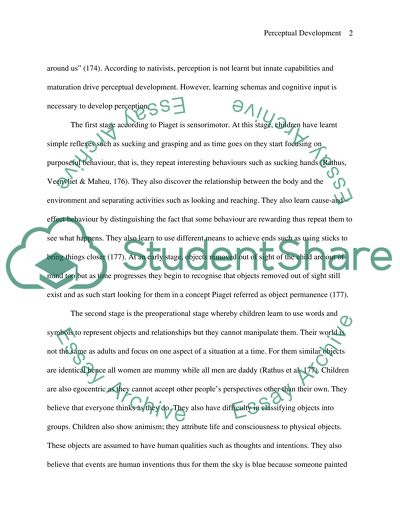Explain the development of perception in children Essay. Retrieved from https://studentshare.org/psychology/1614611-explain-the-development-of-perception-in-children
Explain the Development of Perception in Children Essay. https://studentshare.org/psychology/1614611-explain-the-development-of-perception-in-children.


